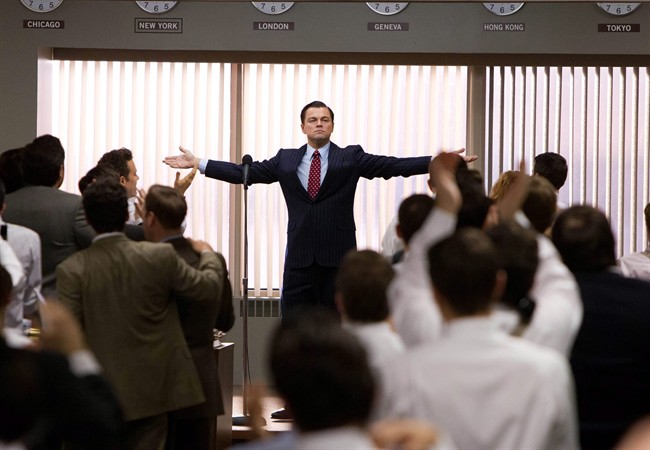Martin Scorsese’s The Wolf of Wall Street is so rife with sex and drug use it had to be edited in order to avoid the dreaded NC-17 rating in the U.S.

But the cuts weren’t nearly enough to satisfy the Kenya Film Classification Board (KFCB), which outright banned the film in the country, citing its “extreme scenes of nudity, sex, alcohol, drug taking and profanity.”
A film being banned might not normally matter when you can readily buy contraband copies of it on the street, but Kenyan officials are taking this ban so seriously they’re arresting bootleg traders.
It’s been nearly a month since the board ordered the ban and since that time officials have reportedly arrested at least 30 people for selling copies of the Oscar-nominated film, according to the BBC.
“We are doing this for the sake of our children and our women,” KFCB communications officer Eva Mbuni told BBC.
“The movie could have been allowed, if the distributors had edited out some of the parts we were uncomfortable with,” Mbuni told the British public broadcaster on Thursday. “But they refused our advisory to them and we had no choice.”
Those convicted of screening or distributing the film could face a 100,000 Kenyan shillings ($1,270 CAD) fine and/or be sentenced to five years in prison, Kenya’s Daily Nation reported last month.
The film, staring Oscar nominees Leonardo DiCaprio and Jonah Hill, is based on the life of 1990s Wall Street stock broker and party boy Jordan Belfort, who eventually spent 22 months in prison for fraud and money laundering.
The film is so rife with scenes of debauchery some members of the Academy of Motion Picture Arts and Sciences reportedly called the film “disgusting.” Regardless, the nearly three-hour film still garnered five Oscar nominations.
It’s also said to have a record amount of profanity — with the stars uttering the f-word at a rate of about 2.6 times a minute or a total of 569 times.
The Wolf of Wall Street has also been met the wrath of censors in other countries.
Censors in Malaysia and Nepal also banned the movie, India and Lebanon only allowed edited versions to be screened at movie theatres and Singapore would only allow it to be screened at specific theatres, according to the Hollywood Reporter.
The film was so significantly cut in the United Arab Emirates it was reportedly only 45 minutes long when it hit theatres in the country. But the UAE’s National Film Council said it was the film’s domestic distributor that made the cuts, not the censors.
Despite the controversy, The Wolf of Wall Street has grossed more than $108 million USD ($118.6 million CAD) at North American box offices and a further $197 million ($217 million CAD) internationally, making it Scorsese’s most successful film of his career.






Comments